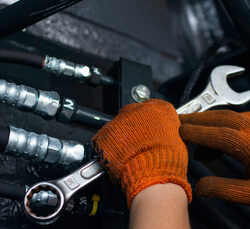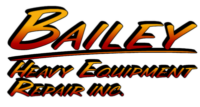Understanding Hydraulic System Maintenance
 Hydraulic systems are widely used in various industries for their efficiency and power. From heavy machinery to manufacturing equipment, hydraulics play a crucial role in the smooth operation of many applications. However, like any other mechanical system, regular maintenance is essential to ensure optimal performance and prevent costly breakdowns. In this blog post, we will explore the importance of hydraulic system maintenance and discuss some key maintenance practices to keep your system running smoothly.
Hydraulic systems are widely used in various industries for their efficiency and power. From heavy machinery to manufacturing equipment, hydraulics play a crucial role in the smooth operation of many applications. However, like any other mechanical system, regular maintenance is essential to ensure optimal performance and prevent costly breakdowns. In this blog post, we will explore the importance of hydraulic system maintenance and discuss some key maintenance practices to keep your system running smoothly.
1. The Importance of Hydraulic System Maintenance
Proper maintenance of hydraulic systems is essential for several reasons. First and foremost, regular maintenance helps to identify and address potential issues before they turn into major problems. This proactive approach can prevent downtime and save you from costly repairs or replacements in the long run. Additionally, regular maintenance ensures that your hydraulic system operates at peak efficiency, maximizing its performance and extending its lifespan. It also enhances the overall safety of the system, as regular inspections can identify and rectify any potential safety hazards.
2. Regular Fluid Checks
One of the most critical maintenance practices for hydraulic systems is regular fluid checks. Hydraulic fluid plays a vital role in transmitting power, lubricating moving parts, and dissipating heat. Over time, hydraulic fluid can become contaminated with particles, water, and other contaminants that can affect system performance. Regular checks of fluid level, cleanliness, and quality are necessary to ensure optimal system operation. If any issues are detected, such as low fluid levels, abnormal color or odor, or the presence of contaminants, the fluid should be drained and replaced promptly.
3. Filter Maintenance
Filters are an integral part of hydraulic systems as they help to remove contaminants from the hydraulic fluid. Regular inspection and maintenance of filters are crucial to prevent the buildup of debris and ensure proper filtration. Clogged or dirty filters can result in restricted flow, increased system pressure, and component damage. Checking and replacing filters as recommended by the manufacturer’s guidelines is essential for the smooth operation and longevity of your hydraulic system.
4. Sealing System Inspection
The sealing system in a hydraulic system prevents fluid leakage and maintains pressure. Regular inspection of seals, O-rings, and other sealing components is crucial to identify any signs of wear, damage, or leaks. Damaged or worn-out seals should be replaced promptly to prevent fluid leakage, which can lead to decreased system performance and potential damage to other components.
5. Component Lubrication
Proper lubrication is essential for the smooth operation of hydraulic systems. Lubricating moving parts, such as cylinders, valves, and pistons, reduces friction, minimizes wear, and extends their lifespan. Regular lubrication ensures that all components are adequately lubricated and helps to prevent damage due to friction or overheating. It is important to use the appropriate lubricants recommended by the manufacturer and follow the recommended lubrication schedule for optimal system performance.
6. System Pressure Checks
Maintaining the correct operating pressure is critical for hydraulic systems. Monitoring and adjusting system pressure as required is an important maintenance practice. Excess pressure can cause damage to seals, hoses, and other components, while low pressure can result in poor system performance. Regular pressure checks, using pressure gauges or sensors, will help to ensure that your system operates within the recommended pressure range.
7. Regular Inspections
Regular visual inspections of your hydraulic system are vital to identify any signs of wear, damage, or leaks. Inspecting hoses, fittings, connectors, and other components can help to identify any potential issues before they escalate. Additionally, inspections should include checking for fluid leaks, loose connections, abnormal noises or vibrations, and any other signs of system malfunction. If any abnormality is detected, prompt action should be taken to rectify the problem and prevent further damage.
Summary
Hydraulic system maintenance is crucial for optimal performance, longevity, and safety. Regular fluid checks, filter maintenance, sealing system inspection, component lubrication, system pressure checks, and regular inspections are all essential practices to ensure the smooth operation of your hydraulic system. By implementing a proactive maintenance routine and addressing any issues promptly, you can prevent costly breakdowns, maximize system efficiency, and extend the lifespan of your hydraulic system.
